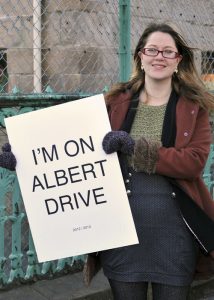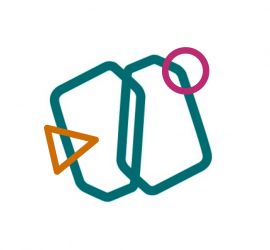
Hard to believe, but it’s almost four years since the final event of the ALBERT DRIVE Project took place in Tramway. The Symposium is beautifully documented HERE along with pages of content covering details of all of the artist outcomes, individual collaborators, community members and volunteers.
Looking over it as I prepared this new website for my freelance work, it reminded me of the importance of stopping, looking back and reflecting on experience from where you are now. Reflective action research has been a critical and vital part of my practice as a cultural sector professional, ever since my first major project – Tramway’s Footprints, which began in 2011.
The project Director, Sarah Munro, critically embedded an action researcher, Sam Harrison, into a central role within the project. Collaborating with him, and developing an understanding of the role of observation, reflection, and evidence-based decision-making in planning, has been a core tenet of my practice ever since.
As I consider the learning from the ALBERT DRIVE Project anew from my new position as an independent consultant, I realise just how much the experience has influenced my deeply held-beliefs on the value, impact and potential of arts and culture. At a time when the sector across Scotland is debating and reviewing the Draft Culture Strategy for Scotland, the ability to look back and connect with the documentation of the project and its learning, has been fascinating.
It’s a reminder that, as someone recently said to me, “good cultural projects are always context-specific”, rooted in their time, place, and the people invested in them. That’s not to say that we cant look beyond the specifics, and learn from the values that underpin their development and delivery.
This is a time period of looming International constitutional changes, local government ‘Efficiency Savings’ and national cultural policy in flux. Putting the effort into rigorous questioning of values and vision, and how they will inform the structure and priorities of delivery, will always be an economical use of time, if you want to realise the best possible outcomes for those involved.

